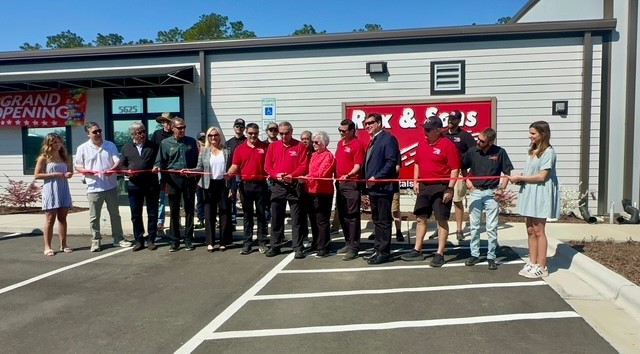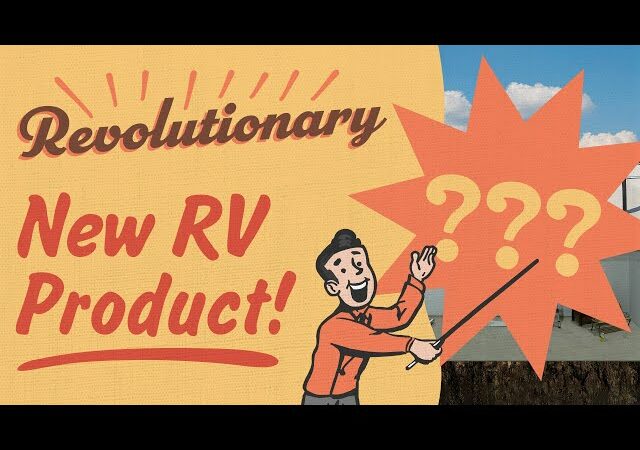Stanek: The Power of Year-Round Tax & Financial Planning – RVBusiness – Breaking RV Industry News

EDITOR’S NOTE: The following is a guest column by Brad Stanek, Financial Advisor, CFP, at Morgan Stanley Wealth Management.
As the tax filing deadline fades into memory, RV dealer principals across the board find themselves mentally in various states, from those who successfully submitted their returns, to those on extensions, or even those faced with an unexpected tax bill. Regardless of where you stand in this spectrum, now is an opportune moment to shift focus from the immediate rush of the tax season to a more proactive approach: year-round tax and financial planning. By revisiting key planning tips and strategies, you can fortify your financial position, minimize surprises, and set a solid foundation for the year ahead. So, let’s journey ‘beyond the deadline’ and explore the power of continuous financial and tax foresight as we sit down with Steve Blake, CPA and Managing Director with the CBIZ Dealership Team.
Safe Harbor & Estimated Tax Payments
CPAs often rely on prior-year books and records to establish a baseline for estimating tax payments, a practice aimed at meeting IRS safe harbor regulations and avoiding penalties for underpayment.
However, this approach becomes problematic when economic shifts or projected dealership revenue render the established baseline irrelevant. Steve Blake suggests that RV dealers proactively share with their CPAs not only prior-year records, but also projected budgets to determine the lowest possible safe harbor tax payment. It’s also recommended that the current year financials are reviewed with your CPA on a quarterly basis to account for any significant changes and to ensure accurate tax planning throughout the year – helping you avoid underpayment fees in the process.
Adjustments, Write-Offs, and Bonus Depreciation
RV dealers often sit-down with their CPAs during the final quarter of the year to discuss dealership write-offs and adjustments, a common practice in the industry. However, why not address these questions throughout the year?
As you may be aware, bonus depreciation serves as a tax incentive enabling RV dealerships to deduct a substantial portion of the purchase price for eligible business assets. Previously, businesses could deduct 100% of the cost of the qualifying property. However, bonus depreciation is slated for a gradual reduction, with the rate diminishing to 60% in 2024 and decreasing by 20% annually thereafter until its full elimination in 2027 (unless Congress intervenes to extend it)[1].
Steve Blake highlights a crucial aspect of planning here: at a high level, if your floor plan interest surpasses your regular business interest expense, you may lose eligibility for bonus depreciation costing you significant tax savings. While we understand that not all RV dealers have rental fleets, if you do, please know it can greatly affect their bonus depreciation deduction. Blake recommends that dealers schedule quarterly meetings with their CPAs to address key questions, such as:
- When is the last time you compared floor rate expenses and your regular business interest expenses?
- When managing inventory, what are the write downs going to be?
- Will you be writing off units mid-year as part of your tax-planning and realize that loss sooner?
- How will those moves impact your ability to take bonus depreciation?
Cost Segregation
For RV dealers aiming to undertake significant building improvements while maintaining profitability, Steve Blake suggests considering a cost segregation study. This tax strategy involves frontloading depreciation deductions for real estate assets in the early years. For instance, when investing $3M for a new dealership building, opting for a cost segregation accelerates the depreciation resulting in higher deductions early on, potentially placing you in a lower tax bracket. Consequently, your building is then depreciated over a shorter timeframe, typically 5-15 years, instead of the standard 39 years for nonresidential real estate.
Moreover, if you recently completed a major improvement without a cost segregation study, there’s no need for concern. The IRS permits a one-year catch-up deduction to bridge the gap, Steve shared.
Specific Circumstances
Steve Blake emphasized the remarkable pace of change in the tax landscape over the past few years. While from 1986 to 2017 there was relatively little alteration in tax policies, the period since 2017 has seen the enactment of eight significant tax laws. As you navigate through the process of developing your tax and financial plan, don’t forget to take into account your unique individual circumstances. Strategies below can help you ensure that you can fully capitalize on tax benefits tailored to your RV dealership, your family, and your goals:
- 529 College Accounts – If you have children or grandchildren going to college, certain 529 plans offer state-level deductions in addition to the tax-free earnings if funds are used for qualified college expenses.
- Retirement Plans – Your dealership and your employees may benefit from retirement plans, like the 401(K). Certain plans also offer tax credits.
- Other Tax Advantaged Accounts – Accounts such as Roth IRAs and Discretionary Profit Sharing can serve as additional planning tools.
Conclusion
As highlighted earlier in our article, RV dealers are encouraged to adopt a year-round tax and financial planning approach, that extends beyond the tax filing deadline. Should you like to learn more on how we help dealer principles, or if you have additional questions, contact us!
Our team offers a complimentary service, the Second Opinion Service, a 360-degree review of your dealership and personal financial situation, aligned to your own stated goals, legacy, and even business transition timeline.
Contact Brad Stanek at 312-648-3381 or [email protected]
The information contained in this article is not a solicitation to purchase or sell investments. Any information presented is general in nature and not intended to provide individually tailored investment advice.
The views expressed herein are those of the author and may not necessarily reflect the views of Morgan Stanley Smith Barney LLC, Member SIPC, or its affiliates.
Tax laws are complex and subject to change. Morgan Stanley Smith Barney LLC, its affiliates and Morgan Stanley Financial Advisors do not provide tax or legal advice. Individuals are urged to consult their personal tax or legal advisors to understand the tax and legal consequences of any actions, including implementation of any strategies or investments described herein.
The services, strategies and investments discussed may not be appropriate for all investors. Morgan Stanley Smith Barney LLC recommends that investors independently evaluate particular services, strategies and investments, and encourages investors to seek the advice of a financial advisor. The appropriateness of a particular service, strategy or investment will depend upon an investor’s individual circumstances and objectives.
The 529 Plan Program Disclosure contains more information on investment options, risk factors, fees and expenses, and potential tax consequences. Investors can obtain a 529 Plan Program Disclosure from their Financial Advisor and should read it carefully before investing. Investors should also consider whether tax or other benefits are only available for investments in your home state 529-college savings plan.
Information contained herein has been obtained from sources considered to be reliable, but we do not guarantee their accuracy or completeness.
Certified Financial Planner Board of Standards, Inc. (CFP Board) owns the certification marks CFP®, CERTIFIED FINANCIAL PLANNER™, and CFP® (with plaque design) in the United States, which it authorizes use of by individuals who successfully complete CFP Board’s initial and ongoing certification requirements.
CRC 6527316 4/24
[1] https://tax.thomsonreuters.com/en/glossary/bonus-depreciation






